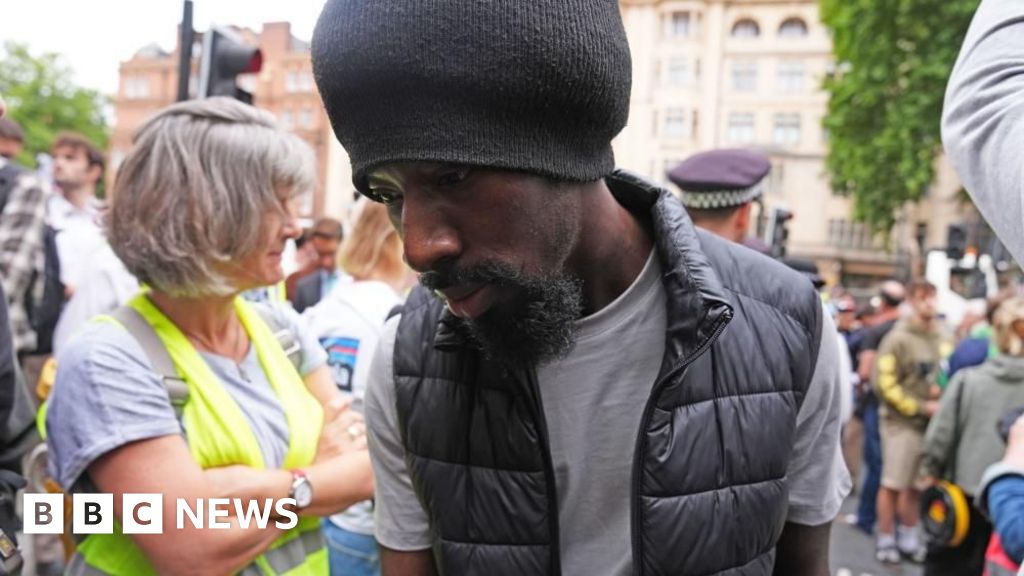Business
Brighter US outlook fires up European stocks

The FTSE 100 recorded strong gains on Friday as US data pointed to resilient consumer spending and relatively subdued inflation, keeping hopes for rate cuts across the pond on track.
The FTSE 100 index closed up 70.85 points, 0.8%, at 9,284.83. The FTSE 250 ended 93.71 points higher, 0.4%, at 21,681.48, and the AIM All-Share ended up 3.91 points, 0.5%, at 777.53.
For the week, the FTSE 100 rose 0.7%, the FTSE 250 advanced 0.4% and the AIM All-Share climbed 0.4%.
Figures from the Bureau of Economic Analysis showed US inflation pressure was largely steady in August.
The core personal consumption expenditures price index, which is the Federal Reserve’s preferred inflationary measure, rose 2.9% on-year in August, matching the pace of growth from July and landing in line with FXStreet cited consensus.
The core reading excludes food and energy. The headline PCE price index rose 2.7% on-year last month, picking up speed slightly from 2.6% in July, as expected.
In addition, the report showed personal income rose 0.4% month-over-month, the same as in the month prior. Consumer spending grew 0.6% month-on-month in nominal terms, coming on the heels of 0.5% gains in the two months prior.
Personal income beat consensus of 0.3%, while spending beat a forecast of 0.5%.
Barclays analyst Pooja Sriram called the inflation figures subdued although she expects core inflation to firm in the coming months amid tariff pass-through.
Analysts at TD Economics said the data, following strong economic growth figures on Thursday, suggests that the US consumer is in “somewhat better shape than previously thought”.
“Overall, an improved growth trend and persistent inflation lean in favour of the Fed potentially having to do a little less in the way of rate cuts to support the economy. This may put some doubt on the interest rate path, though it does not derail the case for two more rate cuts by the end of this year,” the broker said.
The CME FedWatch tool puts an 86% chance of a quarter point rate cut at the Federal Open Market Committee meeting in October, unchanged from Thursday.
The pound was quoted higher at 1.3399 dollars at the time of the London equity market close on Friday compared with 1.3348 dollars on Thursday. The euro stood at 1.1692 dollars, higher against 1.1676 dollars. Against the yen, the dollar was trading at 149.51 yen, lower compared with 149.74 yen.
The yield on the US 10-year Treasury was quoted at 4.18% trimmed from 4.20% on Thursday. The yield on the US 30-year Treasury stood at 4.75%, narrowed from 4.76%.
In European equities on Friday, the CAC 40 in Paris closed up 0.8%, as was the DAX 40 in Frankfurt.
Stocks in New York were mixed at the time of the London close. The Dow Jones Industrial Average was up 0.4%, the S&P 500 index was 0.2% higher, while the Nasdaq Composite was down 0.1%.
On the FTSE 100, Intercontinental Hotels topped the blue-chip leaderboard, rising 4.0%, as JP Morgan double upgraded the hotel operator to ‘overweight’ from ‘underweight’.
IHG is a “quality compounder” benefiting from superior earnings visibility and execution, in JPM’s view, adding this is “key” in times of revenue per average room uncertainty.
Pharmaceutical stocks shrugged off new tariffs from the US with AstraZeneca up 0.4% and GSK up 1.1%.
Russ Mould, investment director at AJ Bell, explained that drug companies are exempt from the 100% tariffs on US imports if they are building a factory in the country.
“That means AstraZeneca and GSK are safe as they’ve both unveiled big investments in the US in what look like strategic moves to get on the right side of Trump,” he said.
“Being exempt is a big win for these companies given previous uncertainty over how they might be affected by Trump’s repeated threats for tariffs on the pharmaceutical sector,” he added.
Phoenix Group rose 1.9% as RBC Capital Markets raised its share price target and reiterated an ‘outperform’ rating.
“Phoenix shares continue to trade at a notable valuation discount versus peers, likely reflecting perceptions that are increasingly unwarranted, in our view,” RBC said.
The broker expects Phoenix to start deploying excess capital supporting buybacks alongside financial 2026 results.
Pennon Group climbed 0.2% as it said its financial performance remains on track, although guidance fell short of consensus, amid the benefits and challenges from the hot weather.
In a trading statement covering April 1 to September 25, the Exeter-based water utility company explained that high demand for water over the summer due to the hot weather was more than offset in revenue by increased meter usage, deferring sales into financial 2027.
In addition, the hot weather also resulted in higher operational costs to respond to the increased demand and operational pressure on the networks.
Despite this, Pennon said it has made a “strong return” to profitability, with earnings before interest, tax, depreciation and amortisation anticipated to increase by 60% year-on-year, net of revenue deferred into financial 2027.
In the financial year to March 2025, Pennon reported underlying Ebitda of £335.6 million.
Analysts at Jefferies said this was slightly below consensus of 66%/67% although part of the variation could be driven by the profiling of revenues from the current year into next to manage the bill profile.
Brent oil advanced to 70.64 dollars a barrel on Friday from 69.15 dollars late on Thursday. Gold firmed to 3,775.97 dollars an ounce on Friday, up against 3,729.67 dollars on Thursday.
The biggest risers on the FTSE 100 were Intercontinental Hotels Group, up 350.0 pence at 9,124.0p, Hikma Pharmaceuticals, up 52.0p at 1,644.0p, Babcock International, up 39.0p at 1,273.0p, NatWest, up 15.2p at 520.4p and Kingfisher, up 8.2p at 301.0p.
The biggest fallers on the FTSE 100 were Rio Tinto, down 84.5p at 4,831.5p, Coca-Cola Europacific Partners, down 80.0p at 6,620.0p, Spirax, down 80.0p at 6,795.0p, Bunzl, down 24.0p at 2,336.0p and Scottish Mortgage Investment Trust, down 11.0p at 1,120.0p.
Monday’s global economic calendar has UK mortgage approvals figures, US pending home sales numbers and Spanish CPI data. Later in the week, a slew of data on the US jobs market will be released, culminating in Friday’s nonfarm payrolls.
Monday’s UK corporate calendar sees third quarter results from cruise operator Carnival. Later in the week, food retailer Tesco reports half-year results while bakery chain Greggs issues a third quarter trading statement.
Contributed by Alliance News
Business
Govt keeps petrol, diesel prices unchanged for coming fortnight – SUCH TV

The government on Thursday kept petrol and high-speed diesel (HSD) prices unchanged at Rs253.17 per litre and Rs257.08 per litre respectively, for the coming fortnight, starting from January 16.
This decision was notified in a press release issued by the Petroleum Division.
Earlier, it was expected that the prices of all petroleum products would go down by up to Rs4.50 per litre (over 1pc each) today in view of variation in the international market.
Petrol is primarily used in private transport, small vehicles, rickshaws, and two-wheelers, and directly impacts the budgets of the middle and lower-middle classes.
Meanwhile, most of the transport sector runs on HSD. Its price is considered inflationary, as it is mostly used in heavy transport vehicles, trains, and agricultural engines such as trucks, buses, tractors, tube wells, and threshers, and particularly adds to the prices of vegetables and other eatables.
The government is currently charging about Rs100 per litre on petrol and about Rs97 per litre on diesel.
Business
Serial rail fare evader faces jail over 112 unpaid tickets

One of Britain’s most prolific rail fare dodgers could face jail after admitting dozens of travel offences.
Charles Brohiri, 29, pleaded guilty to travelling without buying a ticket a total of 112 times over a two-year period, Westminster Magistrates’ Court heard.
He could be ordered to pay more than £18,000 in unpaid fares and legal costs, the court was told.
He will be sentenced next month.
District Judge Nina Tempia warned Brohiri “could face a custodial sentence because of the number of offences he has committed”.
He pleaded guilty to 76 offences on Thursday.
It came after he was convicted in his absence of 36 charges at a previous hearing.
During Thursday’s hearing, Judge Tempia dismissed a bid by Brohiri’s lawyers to have the 36 convictions overturned.
They had argued the prosecutions were unlawful because they had not been brought by a qualified legal professional.
But Judge Tempia rejected the argument, saying there had been “no abuse of this court’s process”.
Business
JSW Likely To Launch Jetour T2 SUV In India This Year: Reports

JSW Jetour T2 Launch: JSW Motors Limited, the passenger vehicle arm of the JSW Group, is reportedly preparing to enter the Indian car market this year. It has partnered with Jetour, a China-based automotive brand owned by Chery Automobile, and the Jetour T2 SUV could be the company’s first product, according to the reports.
Media reports suggest that the launch will happen independently and not under the JSW MG Motor India joint venture. The SUV will wear a JSW badge and name, instead of the Jetour branding. The upcoming SUV will be assembled at JSW’s upcoming greenfield manufacturing facility in Chhatrapati Sambhaji Nagar, Maharashtra.
According to the reports, the company plans to have the vehicle on sale by the third quarter of this year. With this move, JSW aims to establish itself as a standalone carmaker in India.
Expected Powertrain
The SUV is likely to arrive with a 1.5-litre plug-in hybrid setup. Internationally, this hybrid powertrain is offered with both front-wheel drive and all-wheel drive options. It is still unclear which version will be introduced in India.
Design
In terms of design, the T2 is a large and rugged-looking SUV. It has a boxy and upright stance, similar to vehicles like the Land Rover Defender. Despite its tough appearance, it uses a monocoque chassis instead of a ladder-frame construction.
Size
The SUV measures around 4.7 metres in length and nearly 2 metres in width. This makes it larger than the Tata Safari, even though it is a five-seater. A longer 7-seat version is also sold in some markets.
Price
Pricing details for India are yet to be announced. For reference, the front-wheel-drive five-seat T2 i-DM is priced at AED 1,44,000 (around Rs 35 lakh) in the UAE.
Jetour
Jetour is a brand owned by Chinese automaker Chery. Launched in 2018, it focuses mainly on SUVs and is present in markets across China, the Middle East, Africa, Southeast Asia and Latin America.
-

 Politics1 week ago
Politics1 week agoUK says provided assistance in US-led tanker seizure
-

 Entertainment1 week ago
Entertainment1 week agoDoes new US food pyramid put too much steak on your plate?
-

 Entertainment1 week ago
Entertainment1 week agoWhy did Nick Reiner’s lawyer Alan Jackson withdraw from case?
-

 Business1 week ago
Business1 week agoTrump moves to ban home purchases by institutional investors
-

 Sports1 week ago
Sports1 week agoPGA of America CEO steps down after one year to take care of mother and mother-in-law
-

 Sports5 days ago
Sports5 days agoClock is ticking for Frank at Spurs, with dwindling evidence he deserves extra time
-

 Business1 week ago
Business1 week agoBulls dominate as KSE-100 breaks past 186,000 mark – SUCH TV
-
Sports6 days ago
Commanders go young, promote David Blough to be offensive coordinator





